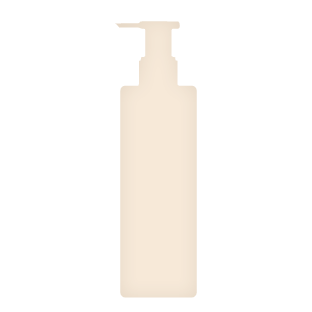Data Availability:
Limited
Zotos Professional All About Curls Boosting Foam
WHERE TO BUY
Ingredient concerns
See how this product scores for common concerns.
-
LOWCancer
-
HIGHAllergies & Immunotoxicity
-
LOWDevelopmental and Reproductive Toxicity
-
HIGHUse Restrictions
Ingredient scores
Ingredients are scored based on their formulation and concentration in this product. Click on an ingredient for more information.
|
WATER
Data Availability: Robust
|
|
|||||||
|
||||||||
|
PEG-40 HYDROGENATED CASTOR OIL
Data Availability: Limited
|
|
|||||||
|
||||||||
|
VP/ VA COPOLYMER
Data Availability: Limited
|
|
|||||||
|
||||||||
|
POLYQUATERNIUM-46
Data Availability: None
|
|
|||||||
|
||||||||
|
LYCIUM BARBARUM (MATRIMONY VINE) FRUIT EXTRACT
Appeared as: LYCIUM BARBARUM FRUIT EXTRACT
Data Availability: Limited
|
|
|||||||
|
||||||||
|
SALIX ALBA (WHITE WILLOW) BARK EXTRACT
Appeared as: SALIX ALBA (WILLOW) BARK EXTRACT
Data Availability: Limited
|
|
|||||||
|
||||||||
|
RIBES NIGRUM (BLACKCURRANT) FRUIT EXTRACT
Appeared as: RIBES NGRUM (BLACK CURRANT) FRUIT EXTRACT
Data Availability: Limited
|
|
|||||||
|
||||||||
|
COCOS NUCIFERA (COCONUT) OIL
Data Availability: Fair
|
|
|||||||
|
||||||||
|
ARGANIA SPINOSA (ARGAN) KERNEL OIL
Appeared as: ARGANIA SPINOSA KERNEL OIL
Data Availability: Limited
|
|
|||||||
|
||||||||
|
GARDENIA TAHITENSIS FLOWER EXTRACT
Appeared as: GARDENIA TAITENSIS FLOWER EXTRACT
Data Availability: None
|
|
|||||||
|
||||||||
|
HYDROXYETHYL CETYLDIMONIUM PHOSPHATE
Data Availability: None
|
|
|||||||
|
||||||||
|
PEG-8
Data Availability: Limited
|
|
|||||||
|
||||||||
|
PANTHENOL
Data Availability: Limited
|
|
|||||||
|
||||||||
|
PHENOXYETHANOL
Data Availability: Limited
|
|
|||||||
|
||||||||
|
BENZOIC ACID
Data Availability: Good
|
|
|||||||
|
||||||||
|
DEHYDROACETIC ACID
Data Availability: Fair
|
|
|||||||
|
||||||||
|
CITRIC ACID
Data Availability: Good
|
|
|||||||
|
||||||||
|
TETRASODIUM EDTA
Data Availability: Fair
|
|
|||||||
|
||||||||
|
SULISOBENZONE
Appeared as: BENZOPHENONE-4
Data Availability: Fair
|
|
|||||||
|
||||||||
|
POLYSORBATE-20
Data Availability: Fair
|
|
|||||||
|
||||||||
|
PROPYLENE GLYCOL
Data Availability: Fair
|
|
|||||||
|
||||||||
|
SODIUM HYDROXIDE
Data Availability: Fair
|
|
|||||||
|
||||||||
|
FRAGRANCE
Data Availability: Fair
|
|
|||||||
|
||||||||
Ingredients from packaging:
WATER, PEG-40 HYDROGENATED CASTOR OIL, POLYQUATERNIUM46 VP/VA COPOLYMER, LYCIUM BARBARUM FRUIT EXTRACT, SALIX ALBA (WILLOW) BARK EXTRACT, RIBES NGRUM (BLACK CURRANT) FRUIT EXTRACT, COCOS NUCIFERA (COCONUT) OIL, ARGANIA SPINOSA KERNEL OIL, GARDENIA TAITENSIS FLOWER EXTRACT, HYDROXYETHYL CETYLDIMONIUM PHOSPHATE, PEG-8, PANTHENOL, PHENOXYETHANOL, BENZOIC ACID, DEHYDROACETIC ACID, CITRIC ACID, TETRASODIUM EDTA, BENZOPHENONE-4, POLYSORBATE 20, PROPYLENE GLYCOL, SODIUM HYDROXIDE, FRAGRANCE.
Product's animal testing policies
Some cosmetics companies have taken People for the Ethical Treatment of Animals and Leaping Bunny animal-testing pledges. For consumers who are concerned about companies’ policies on animal testing, Skin Deep reports this information.
Unknown
Leading international certifiers PETA and Leaping Bunny have no information concerning this company’s use of animal testing.
Understanding scores
Cosmetics and personal care products are not required to be tested for safety before being allowed on the market. The Skin Deep® scoring system was designed to help the public understand whether a product is safe to use or whether it contains ingredients of concern.
Every product and ingredient in Skin Deep gets a two-part score – one for hazard and one for data availability. The safest products score well by both measures, with a low hazard rating and a fair or better data availability rating.
HOW WE DETERMINE SCORESHazard score
The Skin Deep ingredient hazard score, from 1 to 10, reflects known and suspected hazards linked to the ingredients. The EWG VERIFIED® mark means a product meets EWG’s strictest criteria for transparency and health.
Data availability
The Skin Deep data availability rating reflects the number of scientific studies about the product or ingredient in the published scientific literature.












